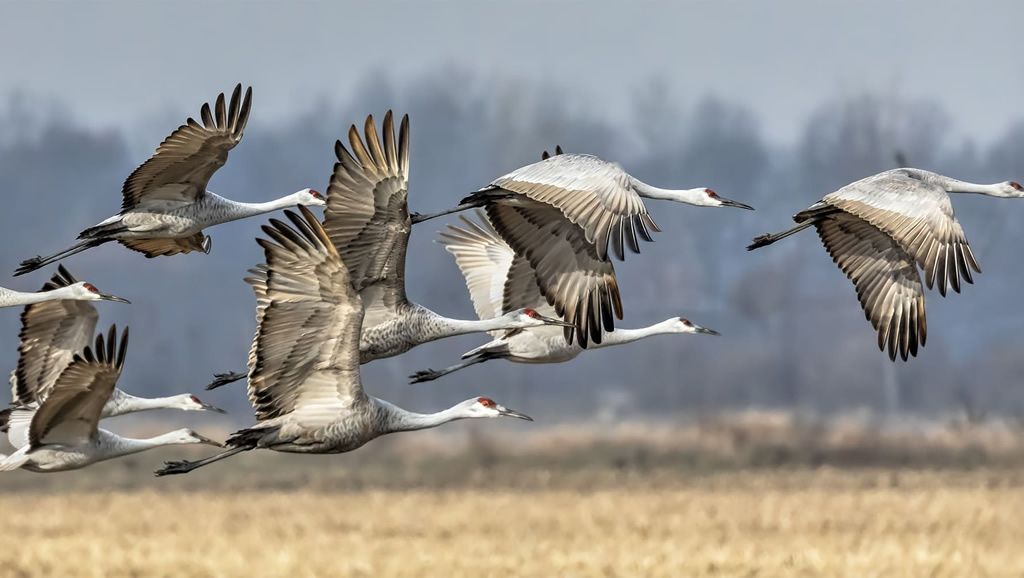In the springtime we see migratory birds returning to us whilst in the Autumn we bid them farewell as they head for warmer southern climes. But how do they know when to leave our shores ? – and why do they bother to return again ?
HOW DO BIRDS KNOW WHEN TO MIGRATE ?
The timing of migration for long-distance migrants is regulated by a range of factors, which may vary depending on the species involved. Studies on passerine species (ie perching birds or song birds) have shown that birds have an innate response to changes in day length, which is a highly reliable indicator of the changing seasons. Some detailed studies, back in the Seventies and early-Eighties on Bewick’s swans wintering at Slimbridge in Gloucestershire, showed that prolonged floodlighting at the swans’ roost site meant they set off on their spring migration relatively early.
Once day length has signalled the onset of the migratory season in a birds brain then more immediate factors such as weather conditions (particularly wind direction) will then kick in to then determine the precise day on which they migrate.
Day length is of course particularly useful for birds living at relatively high latitudes where there will be larger variations throughout the seasons. However, waterbirds that breed in tropical and subtropical regions, where day length is more or less the same all year round, are more likely to respond to regular cycles of rainfall and to exploit temporary wetlands created by flooding.
WHY DO BIRDS BOTHER FLYING BACK NORTH AGAIN AFTER MIGRATING TO THE SOUTH ?
 Why bother flying so many miles south, to more pleasant and warmer climes, only to then turn around and trudge back again in Spring.
Why bother flying so many miles south, to more pleasant and warmer climes, only to then turn around and trudge back again in Spring.
Biologist can disagree on some of the finer points however there is the following consensus on the reasons why birds fly back to the North :
1. Food. Birds fly back north to nest. Baby birds, like baby humans, are ravenous eaters and not shy about demanding food. So the super abundant supply of insects available in the north in Spring and summer will mean more food so that the parents can raise healthier offspring (and therefore lower the baby mortality rates).
2. Longer daylight hours. The higher the latitude, the longer period of daylight parents have to find food and feed it to their babies. Some birds find food sources solely by using their vision; they cannot forage with any effectiveness in the dark.
3. Less competition for food and nesting sites. If all birds converged in the southern latitudes when nesting competition for nesting sites would be too great.
4. Safety. Birds are more vulnerable to predators when nesting. In most cases, there are fewer mammal predators in the North than in the South. Why? Many mammals, who don’t migrate, can’t live in the North because of the cold weather.
5. Improved weather. Some birds migrate south primarily to flee cold weather in the North. If they time it right, birds come back just when the weather turns pleasant in the spring.
RELATED ARTICLES
| Do Animals have a built in compass ? | |
| How Do Birds Know Where to Peck for Worms? |





